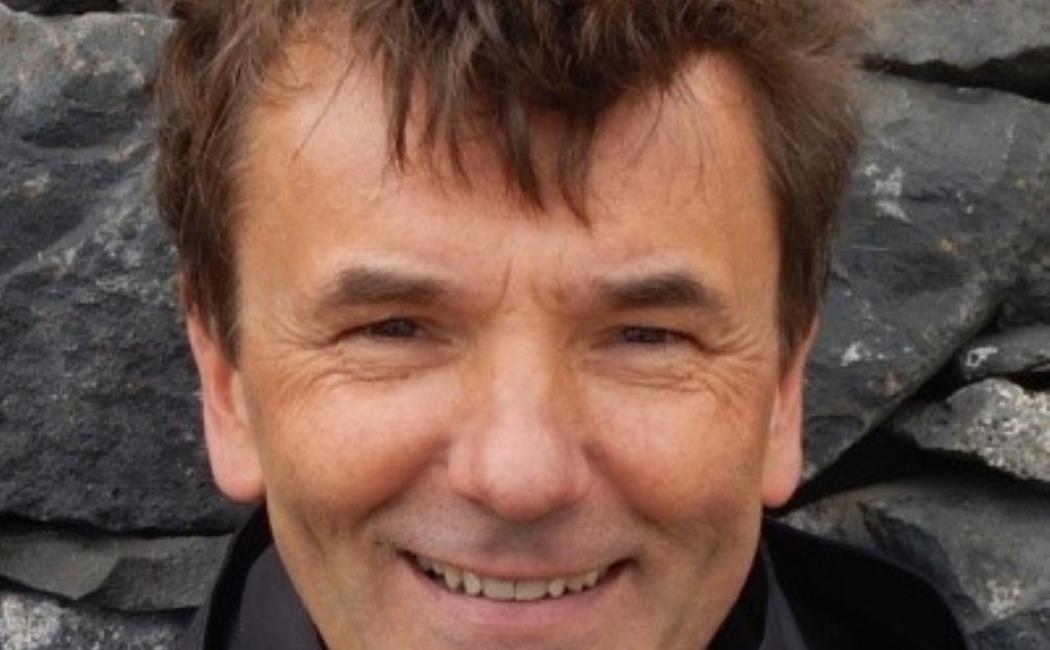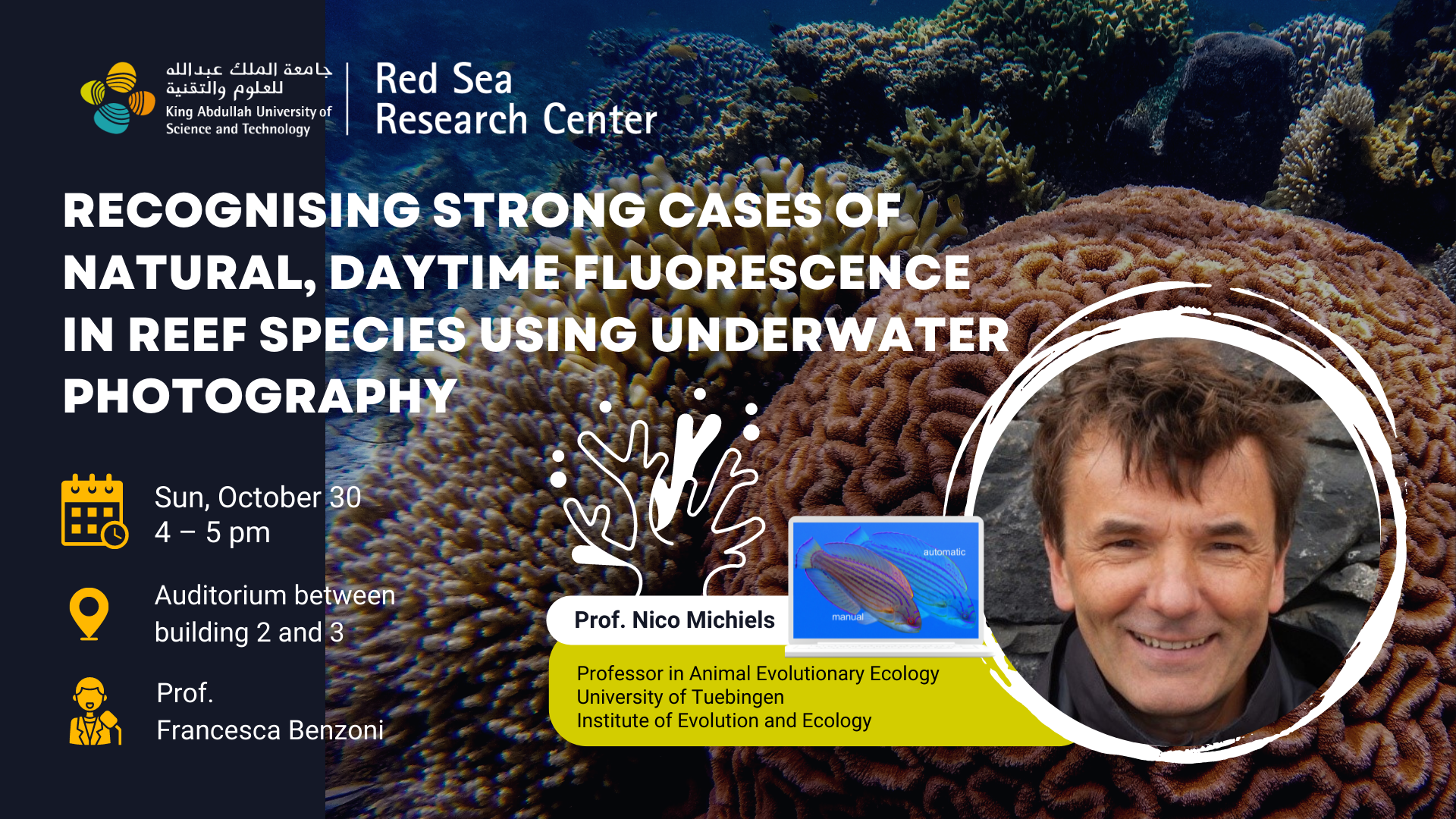



Zoom link: https://kaust.zoom.us/j/93984796242
Abstract: Natural fluorescence is widespread in complex marine environments such as reefs but varies from very explicit to very subtle. This makes distinguishing fluorescence from regular reflection all but straightforward. I shall show that documenting fluorescence in the field using underwater photography is easy when the right light environment at depth, adjusted camera settings and colour correcting filters are selected. Yet, care is needed as artefacts can produce apparent fluorescence where there is none. Non-fluorescent colour standards and blue or green excitation sources can help to resolve such cases. This field approach has the advantage that effective screening of many habitats and species for daytime natural fluorescence can precede the often much more tedious process of sample collection. This allows for targeted sampling for in-depth, lab-based studies of mechanisms or functions. A positive side-effect of this flash-free form of underwater photography is that it results in natural-looking pictures that are representative of how organisms look to the human eye in the field. Modern digital cameras can do better than what people assume. Although the specific cases shown are mostly fish, the technique is applicable to all reef inhabitants.
Speaker: Prof. Nico Michiels
Bio: Prof. Nico Michiels was born and educated in Belgium. He did a PhD at the University of Antwerpen on the reproductive ecology of dragonflies, with a focus on copulation, genital morphology, and sperm competition, and continued as a postdoc at the Limburgs Universitair Centrum, Diepenbeek, Belgium and at Brown University (USA). He then became interested in the sexual mechanisms of hermaphrodites using planarians at the University of Sheffield, followed by a group leader position at the MPI for Behavioural Physiology, Seewiesen (Germany). After moving to a professorship in zoology at the University of Münster, he widened his scope and included earthworms, nematodes, marine free-living flatworms, and sea slugs to the hermaphrodite repertoire. In 2004 he moved to Tübingen. Since then, his research focus shifted to the visual ecology of marine fish, induced by the accidental discovery of strong fluorescence in fish in 2007.